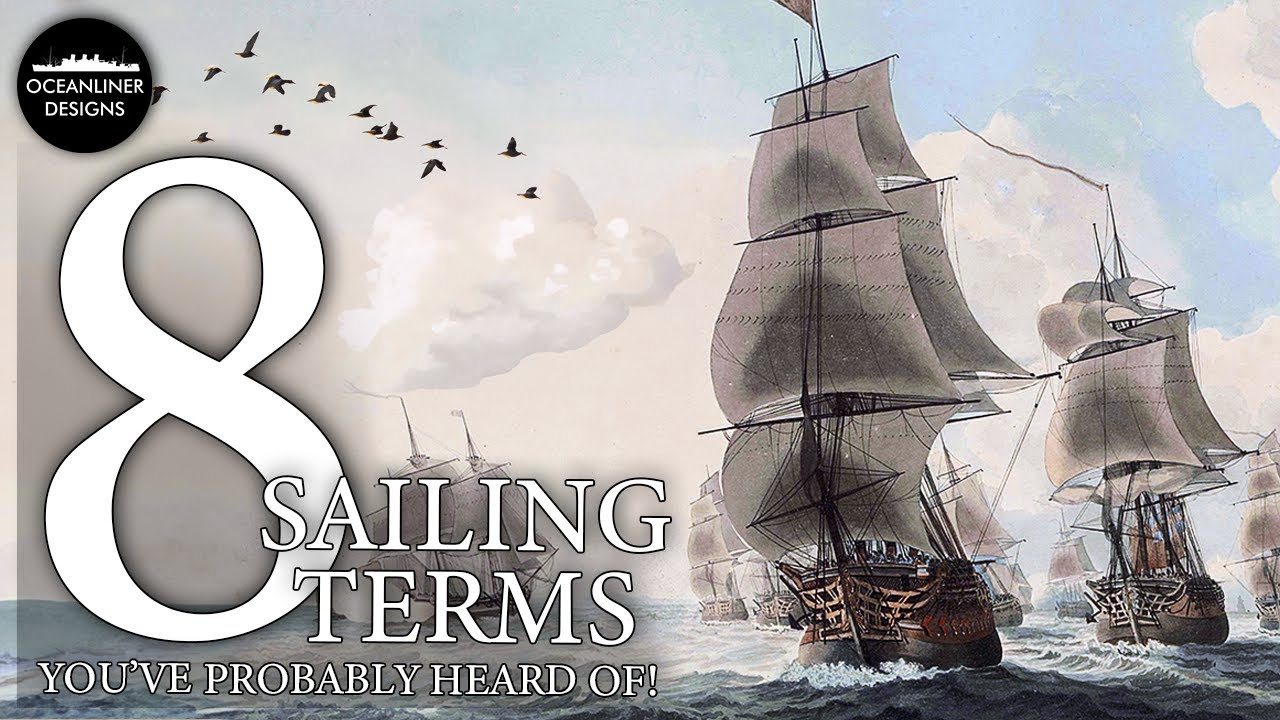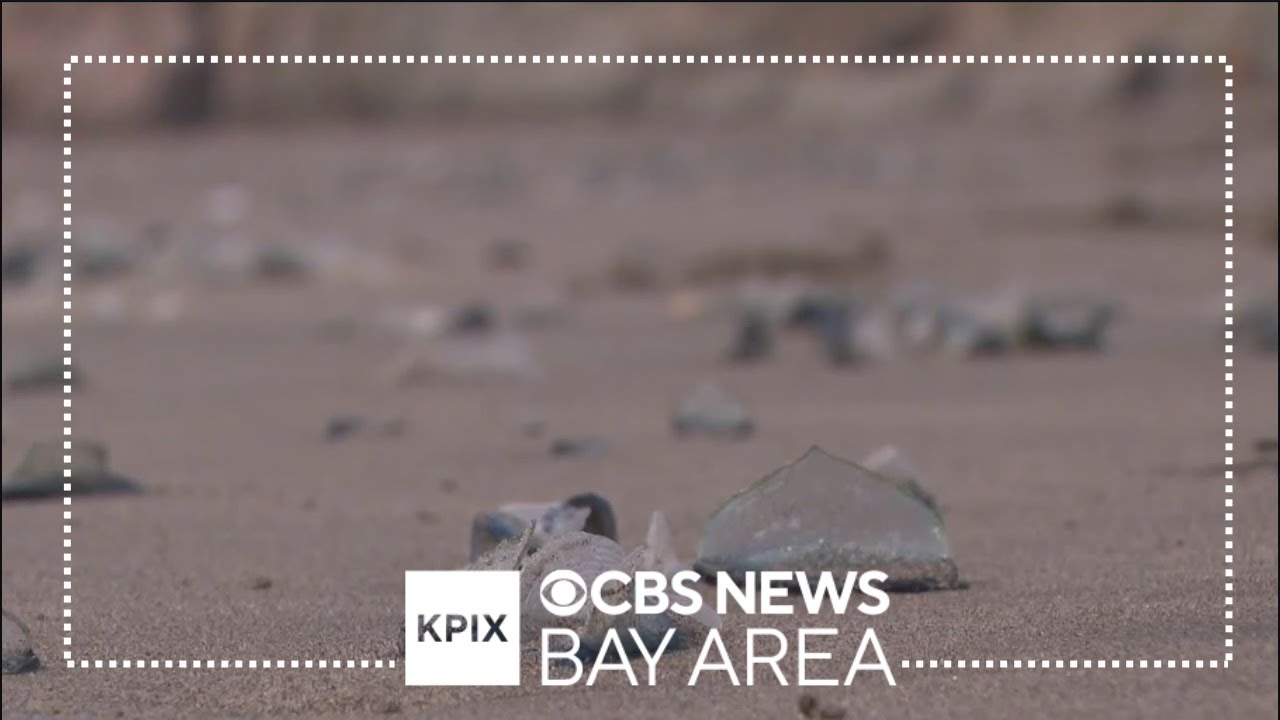Înainte de a mă lăsa dus de cap și de a schimba tactica, vreau să-mi arăt adevăratele culori și să o iau de la capăt cu o tabără curată; s-ar putea să fie un pic de atingere și plecare, dar dacă trecem la linie, totul va fi deasupra bordului. Te-ai surprins vreodată folosind vreunul dintre acele expresii sau expresii ciudate? Ei bine, pregătește-te pentru o revelație fascinantă: toate se regăsesc din epoca de aur a velei! Pregătește-te să fii uimit în timp ce dezvălui originile a 8 expresii comune de navigație și bord pe care le-ai folosit fără să-ți dai seama! 00:00 – INTRODUCERE 00:51 – A fi dus la loc 02:19 – Schimbarea tacului 02:46 – Starea principală 04:34 – Afișarea culorilor tale adevărate 05:34 – 3 Sheets To The Wind 06:36 – Loggerheads 07:29 – Starting Over With A Clean Slate 08:47 – The Bitter End 09:44 – EPILOG Oceanliner Designs explorează proiectarea, construcția, ingineria și operarea celor mai mari nave din istorie – de la Titanic la Queen Mary și de la Empress of Ireland la Lusitania. Alăturați-vă cercetătorului maritim și ilustratorului Michael Brady, în timp ce spune poveștile din spatele unora dintre cele mai faimoase nave și mașini oceanice din istorie! #titanic #istorie #fapte #nave #marinari #expresii navigate #limba marinarilor #sailorsslang #sailingterms #seafaring #sailingship #oceanlife #sailingadventure #sailingskills #nauticalterms #sailingjargon #sailorlife #boatlife #sailingcommunity #sailingcommunity #sailinglangusailingculture #sailingskills
source
8 expresii de navigație pe care le folosești zilnic fără să-ți dai seama!





If you know of any other shipboard expressions, feel free to share them in the comments below! I'd be thrilled to create a Part 2 to this video sometime in the future 😊~Mike
Mike, one of Walmart's house brands is named "Mainstays".
seeing that "the sun is over the yardarm", I'm going to have a drink!
It's nice to catch up on the scuttlebutt.
Quaint, diminutive music is unnecessary and kind of annoying. Otherwise I love it.
Great Video!! We Love listening to your well spoken information!!
Thanks from Walt and Sue in Michigan ❤
Very nice. I didn't realize some of these were sailing terms. I also have never heard of some of these. Great video. You definitely do a great job thank you for your regular videos and intriguing content.
you aren't my friend mike brady.
That was not a main stay. You pointed out a baby stay.
https://3.bp.blogspot.com/-9eMxciLVeeo/Wh0crjaq4pI/AAAAAAAASNg/-D0dKTxrJVkjP2gR6zdCB4bosSS8ZJe_wCLcBGAs/s1600/BABY.png
5:37 "Tired and emotional" 😅
Mike, What a great episode! I’m a sailor on the Chesapeake Bay (see my YouTube channel) and it was amusing to hear the sailing origins of some common words and phrases. But when sailing, even today, we still use many of those same words and phrases. Fair winds and following seas!
One more pun,and I'll make you walk the plank!
"Jury rig" means a hurried up quick fix, not very tidy. I had always assumed it was from "injury rig", as in when a storm damages a spar or mast. But google for it, and nothing says that. It's enough to inspire conspiracy theories.
As a historian and linguist, I have always been fascinated by the origin of words and phrases. As such, I thoroughly enjoyed your delightful presentation – which I watched to the, by no means "bitter" end, the one expression whose origin was new to me.
Thanks for yet another informative and delightful video.
Can I just say I LOVED the background music, took me back in time.
Much love always from Brasil. 🖤🖤
"Ship shape in Bristol fashion" have heard it many times growing up…..don't quite know what it means..
“Dead reckoning” is my favourite nautical term used in everyday language.
'Nipper', 'Ship-Shape and Bristol Fashion', 'Knock Seven Bells (out of him)', 'Learn the Ropes', 'Cold Enough To Freeze the Balls Off A Brass Monkey', 'Grog' (as in 'Groggy'), 'POSH', 'Veer Around', '(See it at) Close Quarters', 'Give a Wide Berth', 'On-Board (with it)', 'In The Doldrums', 'Caught between the Devil and the Deep Blue Sea', 'High and Dry', 'A Long Shot', 'Sailing Close to the Wind', 'Loose Cannon', 'Son of a Gun, 'Scraping the Barrel', 'Choc-a-Block', 'Scuttlebutt', 'As the Crow Flies', 'Feeling Blue', 'Mate', (any)'Leeway' (on that price?) etc etc.
Took me 30 minutes to think of those, there must be scores more expressions I could name (not really), but that would be 'Letting the Cat Out Of the Bag'……
This is a silly video, but I dig it!
We shouldn't Just focus on dying sailors, after all!
Speaking of getting carried away, I wonder how obvious "take the wind out of your sails" is, and whether the two have any connection.
Wow 👍👍👍👍👍
I thought you were a maritime historian.
Robert Louis Stevenson's novel, Treasure Island, uses "three sheet in the wind" because the sailors were too drunk to get the sheets "against" the wind – thus catching the wind for power – and thus were loose and flapping.
This video is great! I'm really glad to see you branching out into the history around ocean travel. You do such a great job at sharing information! That said, I was scratching my head about why so many sailing terms are in use in the language today, but it makes sense, considering England spent centuries building a naval empire… It's no wonder so much of the language comes from those days
G’day Mike, I’ve been an enthusiastic student of interesting English words and their origins for almost as long as I could read. Years ago, I started to discover that, literally, hundreds of words; item names and phrases came to us from the earliest days of seafaring, sailing ships and naval jargon.
My career path, as a young man, led me into the RAAF. Very soon after enlisting I began to realise that the language of aircraft, apart from being influenced by French terms, was also heavily peppered* with naval and seafaring terminology. (BTW: pepper was widely used to preserve food at sea – or used to hide bad tastes in old “rations” or “victuals”.)
In the air force, food taken “onboard” was referred to as “rations”.
Just the same as groups of ships in naval forces, military aircraft group in “squadrons”.
You find yourself moving through an aircraft by going "fore" and "aft"; port or starboard. The positions of twin aircraft engines also bare the port or starboard positions. Four engines; well then, one has “inboard” and “outboard” powerplants. Aircraft, especially in the earliest days of military service were referred to as “ships”, some older aircraft, even today, can be known as ships or kites.
The ‘driver’ of an aircraft is, of course, known as a “pilot”. As in the maritime context, the pilot can be either the main helmsman or the specialist local guide who takes control of a vessel or advises a “Captain” who is not familiar with the saftest course into and out of a port or other marine hazard. Air’craft’, of course, often land or take off from air’ports’.
It is still not old fashioned to refer to the “captain” of an aircraft as a “skipper”, both maritime terms. Just like vessels, aircraft can be either “cargo”, “freighter” or “passenger” planes or a mix of both uses.
So, Mike, there’s just the tip of the iceberg of how aircraft have taken on seagoing terms as they developed. I’d give you some more but I’m off to the “head”, sometimes known in the old days as the “can” (in the earliest days of flight, it was probably “the bottle”) but we won’t go there… unless we have to… 😉
Cheers, and thanks for another great video. Bill H.
P.S. While I’m on the subject of aircraft. One of my all-time pet peeves comes from those many people, who really should know better, who put an ‘s’ at the end of the word “aircraft”.
I’ve even seen this in magazines etc. about flying and aircraft. TV and radio journalists, presenters etc. make this mistake all the time.
I see this so often on YouTube and elsewhere I have a comment waiting in my files to rapidly set the record straight; it goes like this:
Unlike “ships” and “vessels”, the addition of an ‘s’ to the word “aircraft” is incorrect. The word “aircraft” should be used for both plural and singular contexts. In English it is one of those words called singularia-tantum nouns or irregular plurals like “sheep” and “fish”. BH
HI, I'm your friend Erich William!
You might include the phrase "by and large" in your nautical terms. Sailing 'by the wind' meant sailing close hauled into the wind. Sailing "large" meant sailing almost before the wind. Thus 'by and large' meant under all sailing configurations.
3 sheets to the wind is based on windmills, not sailing. It meant the mill was spinning missing one of the four sails, it was both spinning erratically and out of control. To make such a basic mistake, the keeper was probably in the same drunken state.
Source: The tour guides at the Kinderdijk.
Very Very well done : ) … Great Fun !! Thank You
Man, I always thought blank skate was a Roman thing from tabula rasa.
This is great, more please!
I like the cut of your jib, Mike.
I am always amazed about how complicated it was to work the sails. The number of lines used on those large sailing ship boggles the mind. The thought of having climb up to the sails in heavy weather is beyond belief.
I am 82, and only recently discovered you channel. I find it very informative, educational and a pleasure to watch.
❤
Nice video Mike, very informative and entertaining. Loved it.
I think we can all agree the finest one is when someone mentions that "the sun is over the yardarm", in other words, its time for a drink.
(and I don't mean a cup of bloody tea either. Yes, I am the one Englishman that hates tea. Every rule needs an exception right?)
"Learning the ropes".
I'm here because I want to "Learn the ropes".
Nautical nonsense is something I wish
He’s my friend guys not yours
You really are very good, you know. 🙂 Well done, old chap.
Good one Mike, but why record your interesting info with a bl%dy ice cream van ringing out its jingles in the vicinity ?
Drove me mad !!! Too overpowering.
You want more, well here goes. False flag, the displaying of colors other than your true colors in order to approach an intended victim. Starboard, port, bow, stern, midships, beam, to windward or to weather, to leeward pronounced leu-ard, always a good one the head or cats head, halliards, berth, you covered tacking, now gybing or jibing or wearing ship, masthead, crows nest, chart(s), knot as pertains to ships speed, also ropework, the difference between rope and line, freeboard, fathom, gaff, in irons, and knowing the ropes. There are of course many other terms.
If there's enough interest you might consider a video on the different rigs of boats/ships throughout the years also hull designs.
Excellent video. This kind of quality content is why I subscribed, despite not really being into ocean liners. I have an idea for a video – do a video on ship's horns. How they were developed, liners that had exceptional sound, when horns were sounded, etc.
Unfortunatelly none of these apply to my native hungarian🫤. I think we only have expressions like "Ez a hajó már elment" ("This ship has already gone"). We say this when someone fails to do or achieve something in time.
Vlog… blog… log (as in journal or register).. from the record of a ship's speed taken by throwing a wooden log off the bow, tied to a knotted rope. Timing the number of knots displayed gave the speed, which was written into the log.
As a linguist who has always loved the ocean, I absolutely loved this video. I must say that I was surprised “an even keel “ was not mentioned!. 10:08